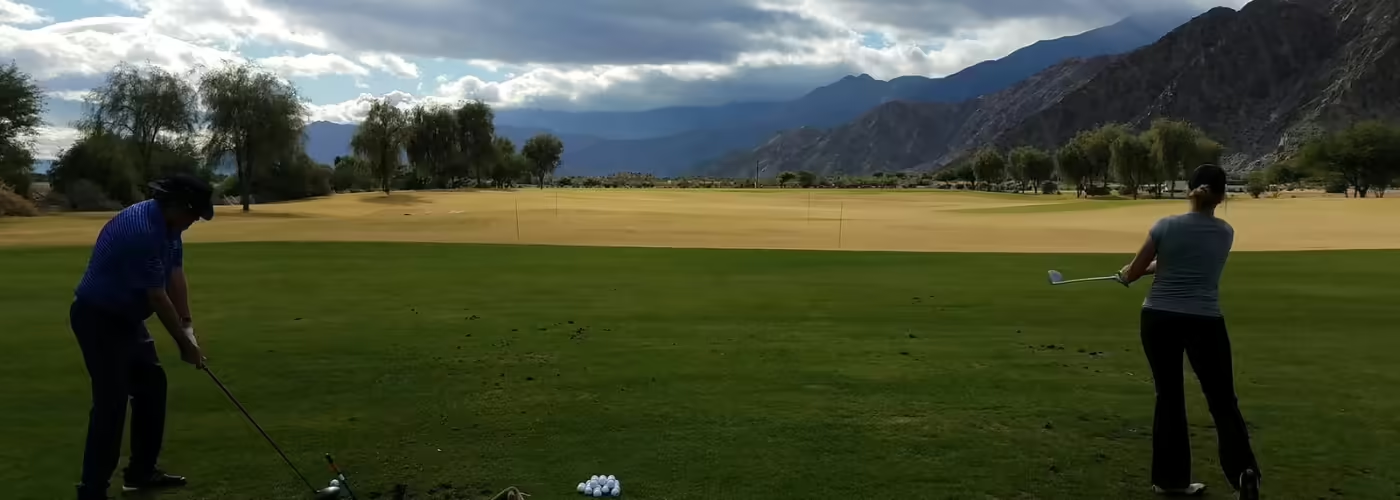As most Golf Professionals are pushing “you need to improve your short game to improve your scores” … we are pushing – “find the weakest part of your game and improve it so that you can lower your scores.”
And in reality – the weakest part of most Golfers game is their Driver. Yes, there are Golfers that hit their Driver well enough to easily get on the green (with a 7 iron or less) in two shots on a Par 4. However, that small select group may make-up about 20% of all Golfers.
80% of Golfers struggle to be consistent enough off the tee to allow themselves to have an opportunity to hit the green with anything other than their 3 wood, 5 wood or 3 hybrid on virtually every par 4.
And about half of these Golfers won’t even be able to hit their 3 wood solid enough to get to the green. So basically – 40% of all Golfers will go without a Green In Regulation on a Par 4.
So it is fair to say that most Golfers have more problems with their “long game” rather than a “short game” problem. They lack the distance to put themselves in position to score. And when they try to swing harder to get more distance – they often hit their worst drives.
You must understand that your distance is limited by your swing speed. For example – below is approximately the maximum distance you will be able to hit your Driver based on your club head speed (considering you’re playing near sea level to a flat fairway):
70 mph swing speed – 175 yards
80 mph swing speed – 200 yards
90 mph swing speed – 225 yards
100 mph swing speed – 250 yards
The average for the LPGA Player is 95 and 100 mph
The average of the PGA Tour Player is 115 and 120 mph
While the average male Golfer’s swing speed is about 85 mph and the average female Golfer’s swing speed is about 70 mph … the majority of Golfers playing today are experiencing long second shots on the Par 4’s.
The average man playing a 375 yard par 4 – would need to hit in the absolute center of his Driver to drive the ball 215 yards. Thus, he would need a “perfect” drive to have 160 yards to the green on his second shot … which is about a “perfect” 5 iron to the green. However, if the center of the club is missed … he is now looking at a 200 yard drive and a 175 yard 3 hybrid.
A lady playing a 340 yard Par 4 – would need to hit in the absolute center of her Driver to drive the ball 175 yards. Thus, she would need a “perfect” drive to have 165 yards to the green for her second shot … which is about a “perfect” 3 wood. However, if the center of the club is missed … she is now looking at needing 2 shots to reach the green.
I understand why many Golf Pros speak about fixing your short game because you’re forced to use it on basically all Par 4’s. On the other hand – we could counter this by helping you to hit more Greens in Regulation.
Think about this – every 1 mph you increase your clubhead speed will give you the potential to hit the golf ball 2.5 yards farther. A 10 mph increase in clubhead speed can give you 25 more yards!
Now, how do you increase your clubhead speed? The one thing I would not try to do is swing harder … that will surely screw you up. However, the most practical way would be to get more efficient in your golf swing.
We have found that virtually every Golfer can learn to become more efficient in their golf swing to increase their distance without trying to to swing harder. The key is finding which area of your swing is causing you to lose efficiency. Here are just four examples that need to be checked:
– Can your set-up be improved to allow better movement through the ball?
– Is your swing connected in the backswing?
– Are you loaded up on your backswing (while maintaining balance)?
– Are you all hands on your forward swing? Or is everything moving in synchronicity?
To hit the golf ball farther is not just about trying to making a bigger shoulder turn, creating more lag with your hands, or having a faster hip turn. We constantly have Golfers that come to see us that have tried these techniques because they were taught to do so or have read about these. Yet, these Golfers are now more screwed up and frustrated than before attempting to implement these difficult techniques.
If you want to gain power so that you’re using a 7 iron and pitching wedge for your second shots … your key should be to understand how to find the “power prevention areas” in your golf swing. Then learn to “feel” how you can create more efficient power.
Unfortunately for most Golfers – they will either be given bad advice and lose what consistency they have or they will do nothing and relegate themselves to always having long/difficult clubs on their 2nd shots.
The Monkey is either trying to swing harder or adding difficult techniques to hit the golf ball farther … yet rarely adds distance and frequently becomes more inconsistent
The Player focuses on one area of inefficiency and works on it before jumping to something they read in Monkey Digest
Go ahead, Be a Player!
Regards,
Marc Solomon – Your Instructor For Life


